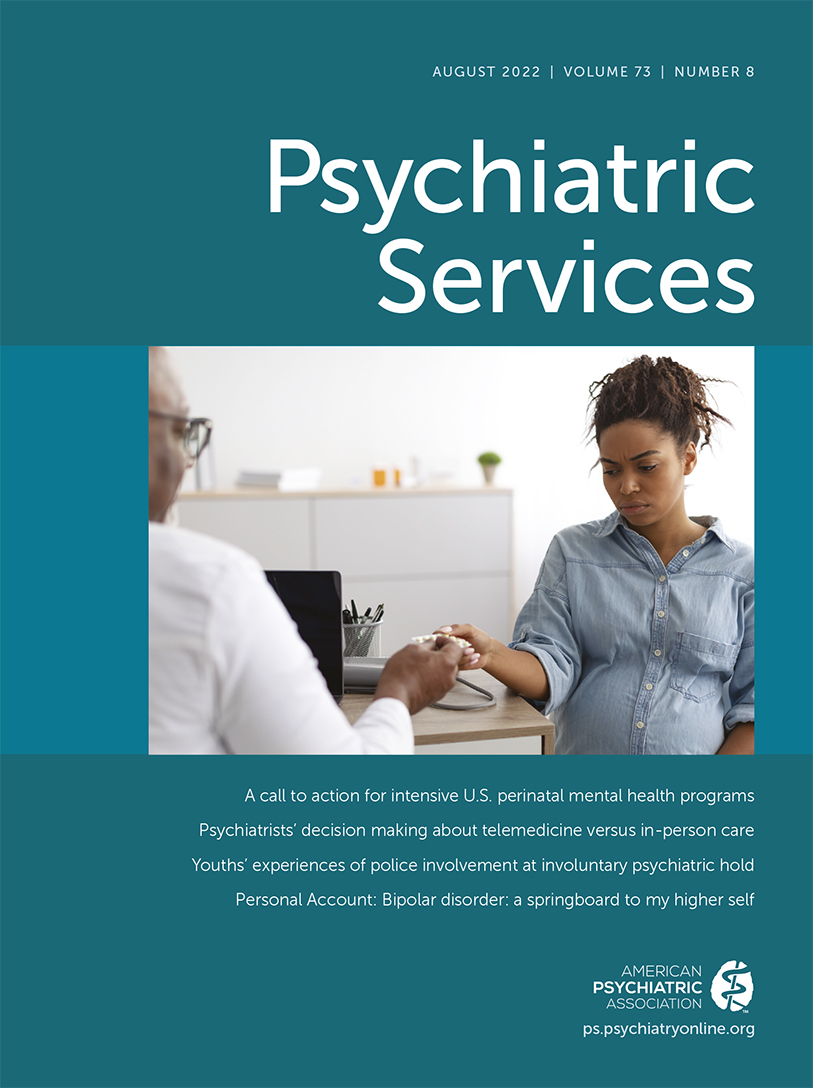Serious Mental Illness Diagnosis and COVID-19 Vaccine Uptake in the Veterans Health Administration
Abstract
Objective:
This study examined the association between serious mental illness diagnoses and COVID-19 vaccination among Veterans Health Administration (VHA) patients.
Methods:
The sample (N=4,890,693) comprised veterans ages ≥18 years with VHA outpatient visits from March 1, 2018, through February 29, 2020. Veterans with serious mental illness were identified with ICD-10 diagnostic codes from electronic health records of the U.S. Department of Veterans Affairs. Receipt of a VHA COVID-19 vaccine from December 1, 2020, through June 1, 2021, was documented by using procedure codes. Treatment effects estimation with inverse-probability weighting was used to estimate the effects of serious mental illness on COVID-19 vaccine uptake.
Results:
Patients with serious mental illness and patients without serious mental illness were equally likely to receive a vaccination (48% and 46%, respectively; average effect of serious mental illness=–0.4%, 95% confidence interval=–0.8% to 0.1%).
Conclusions:
VHA outreach activities have contributed to equitable distribution of the COVID-19 vaccine.



